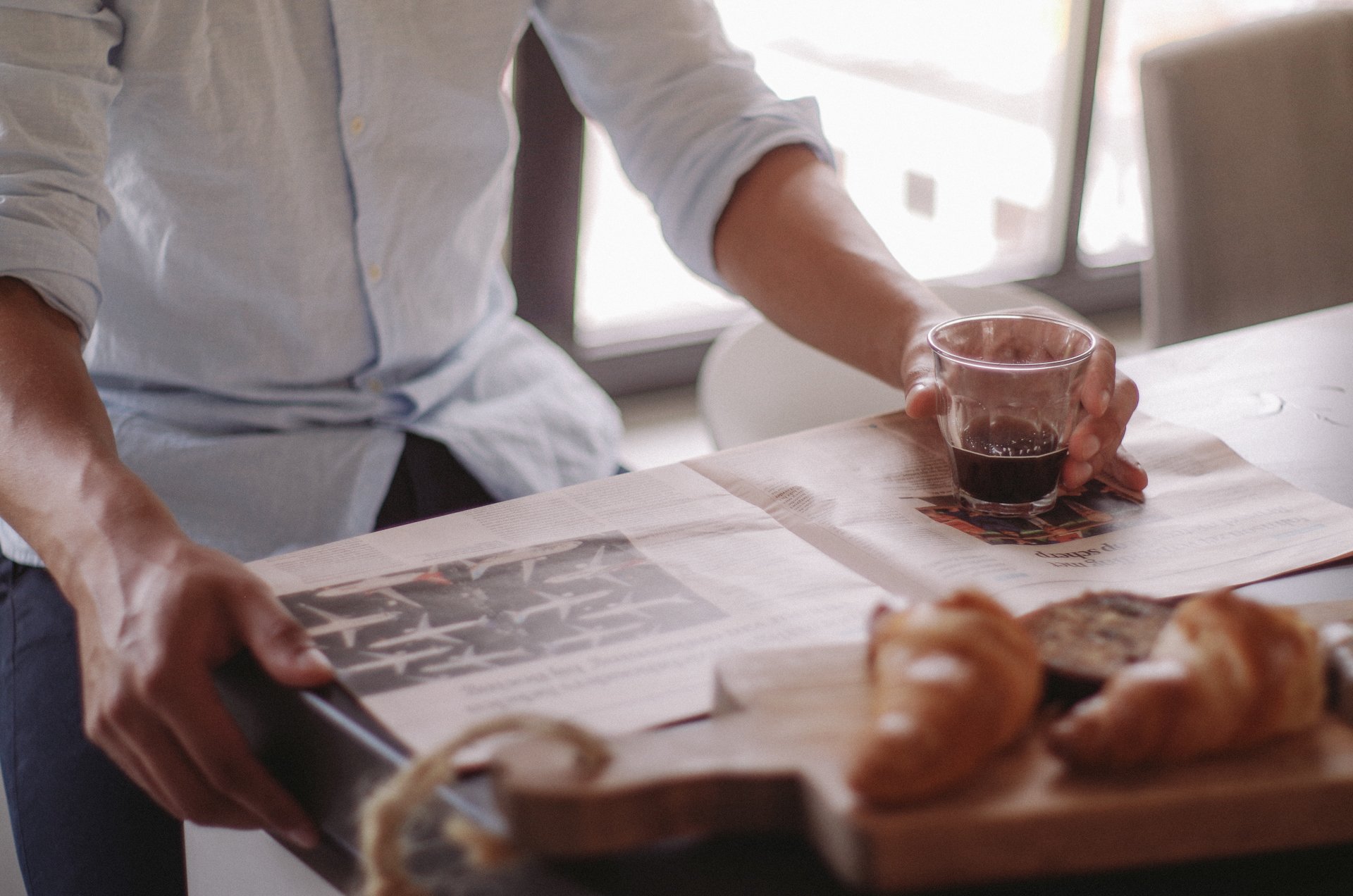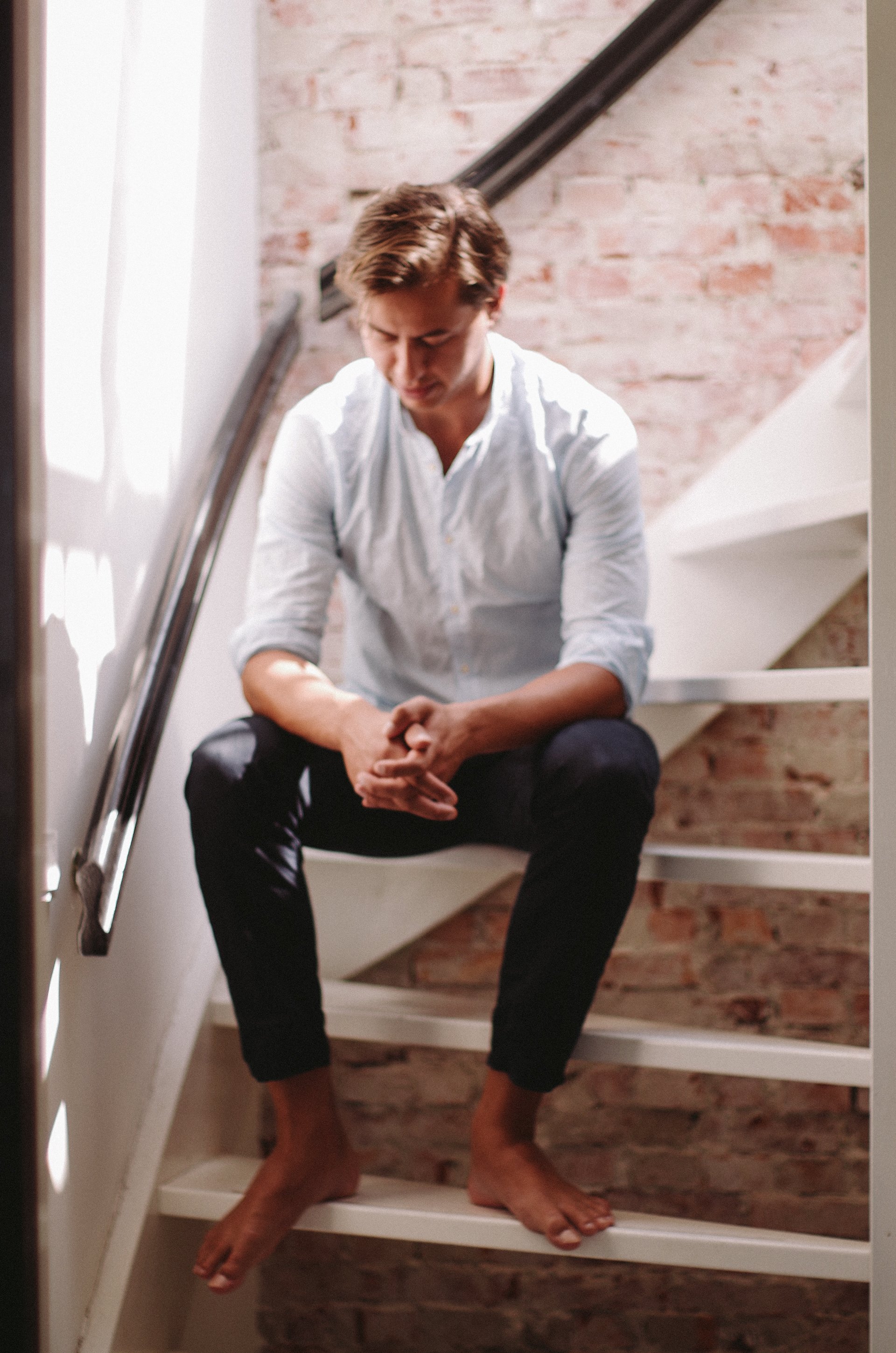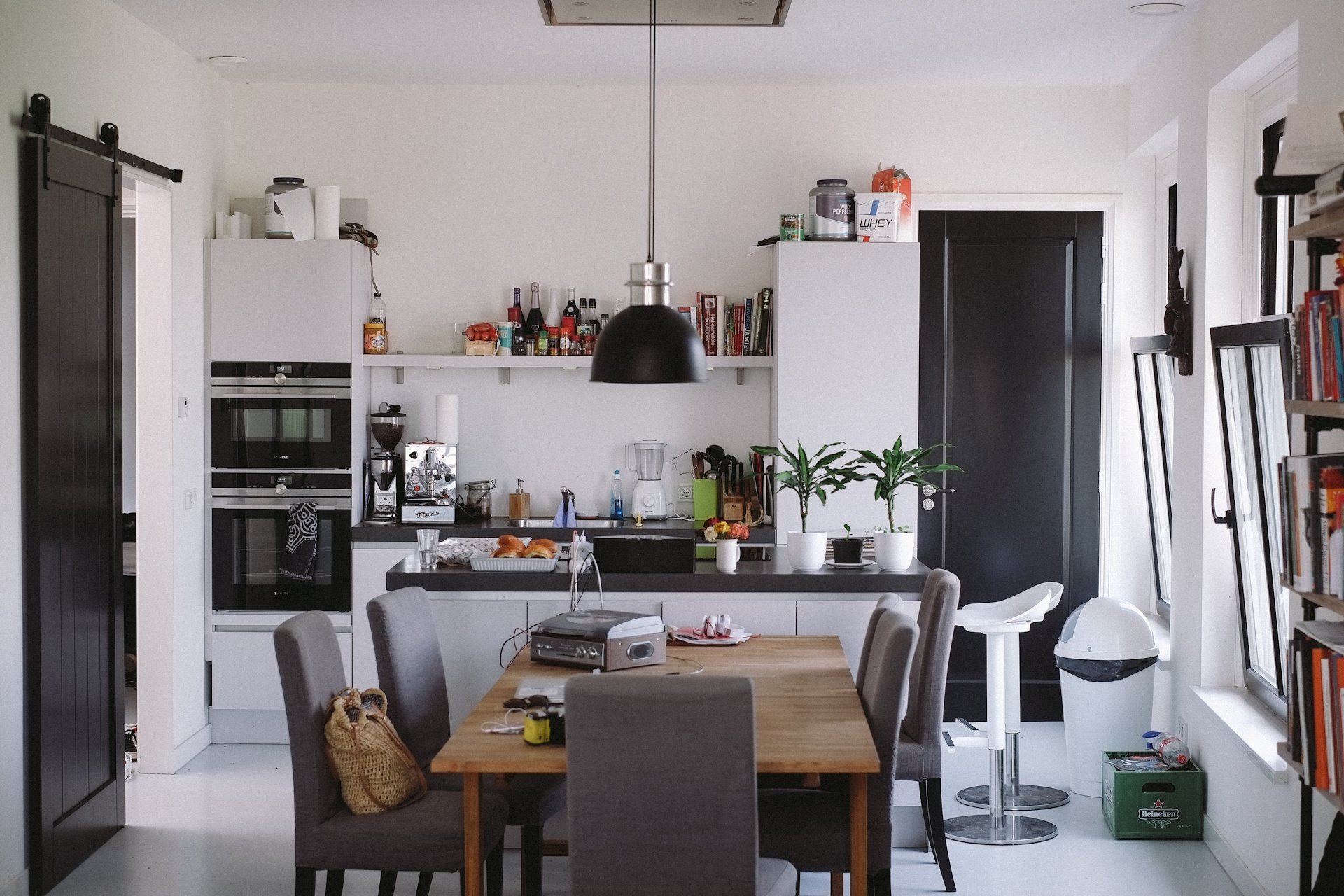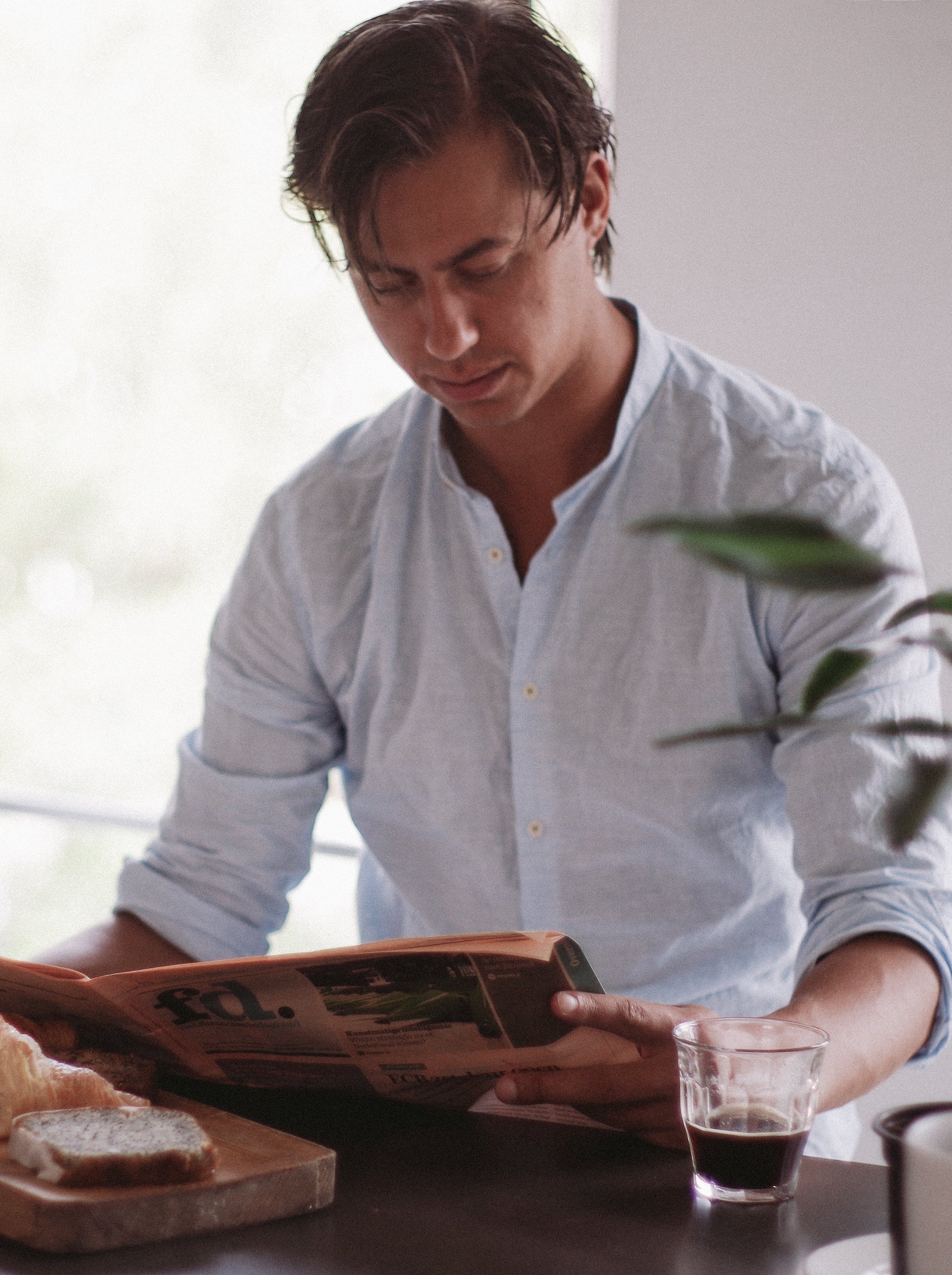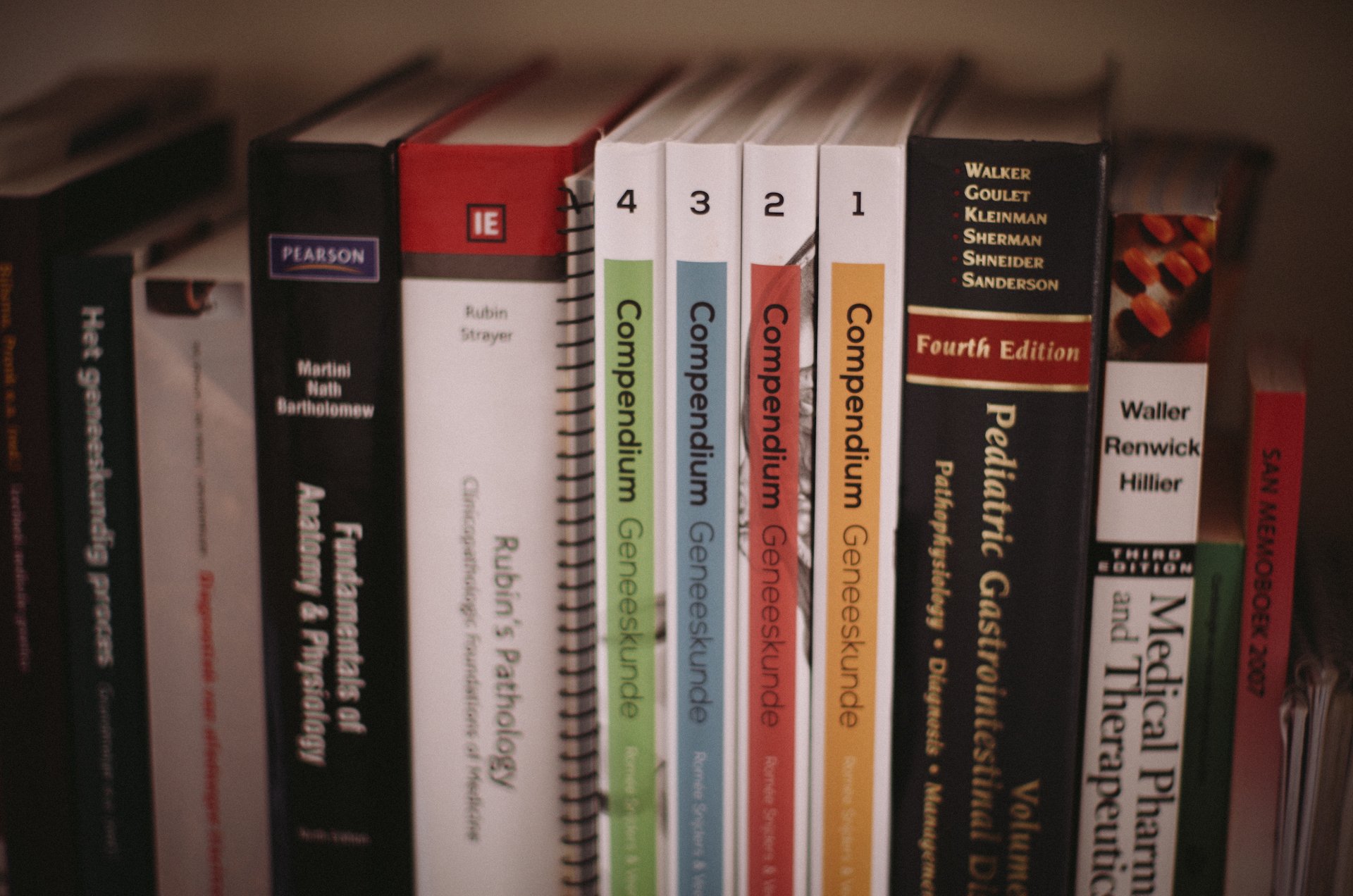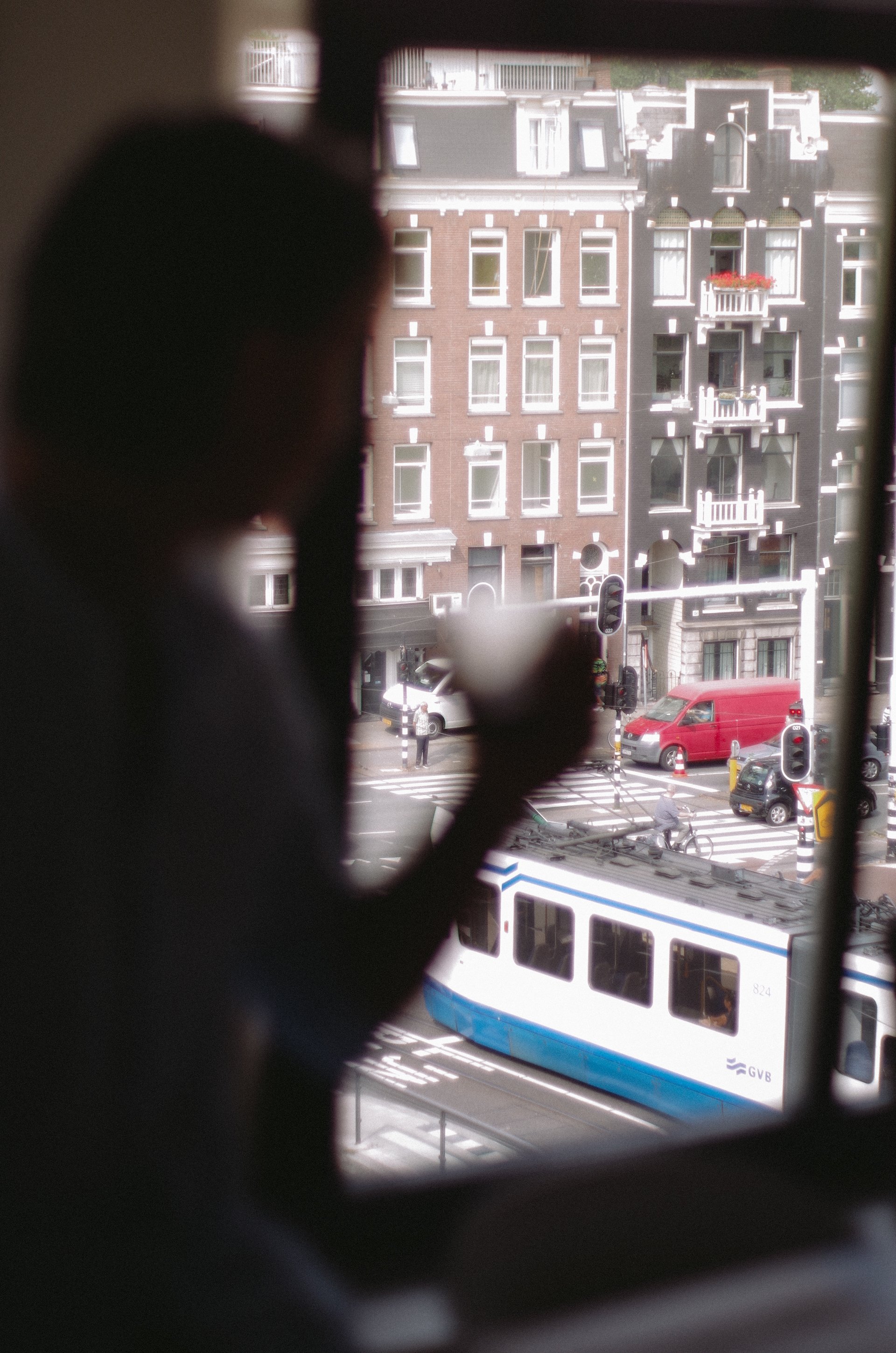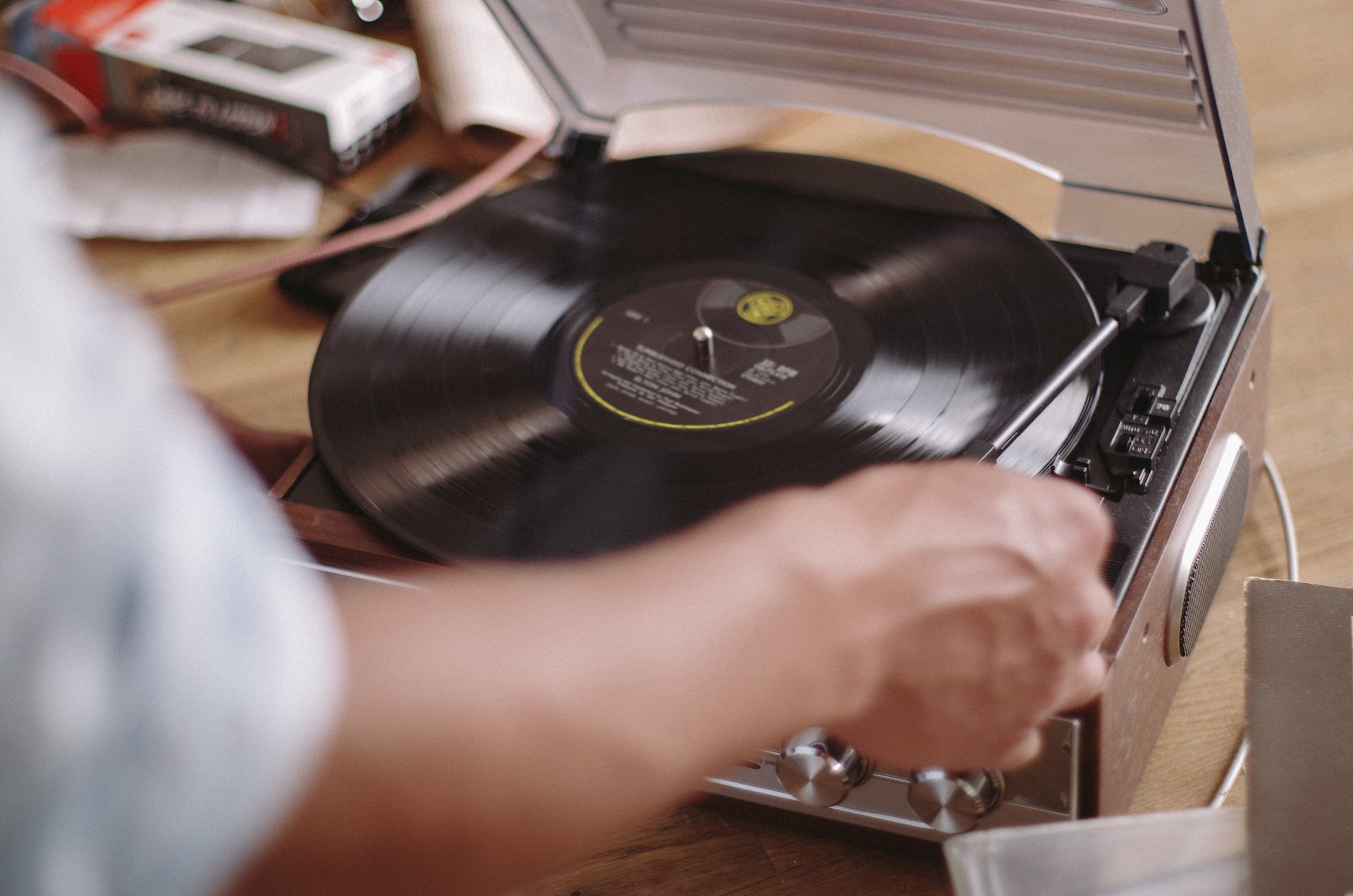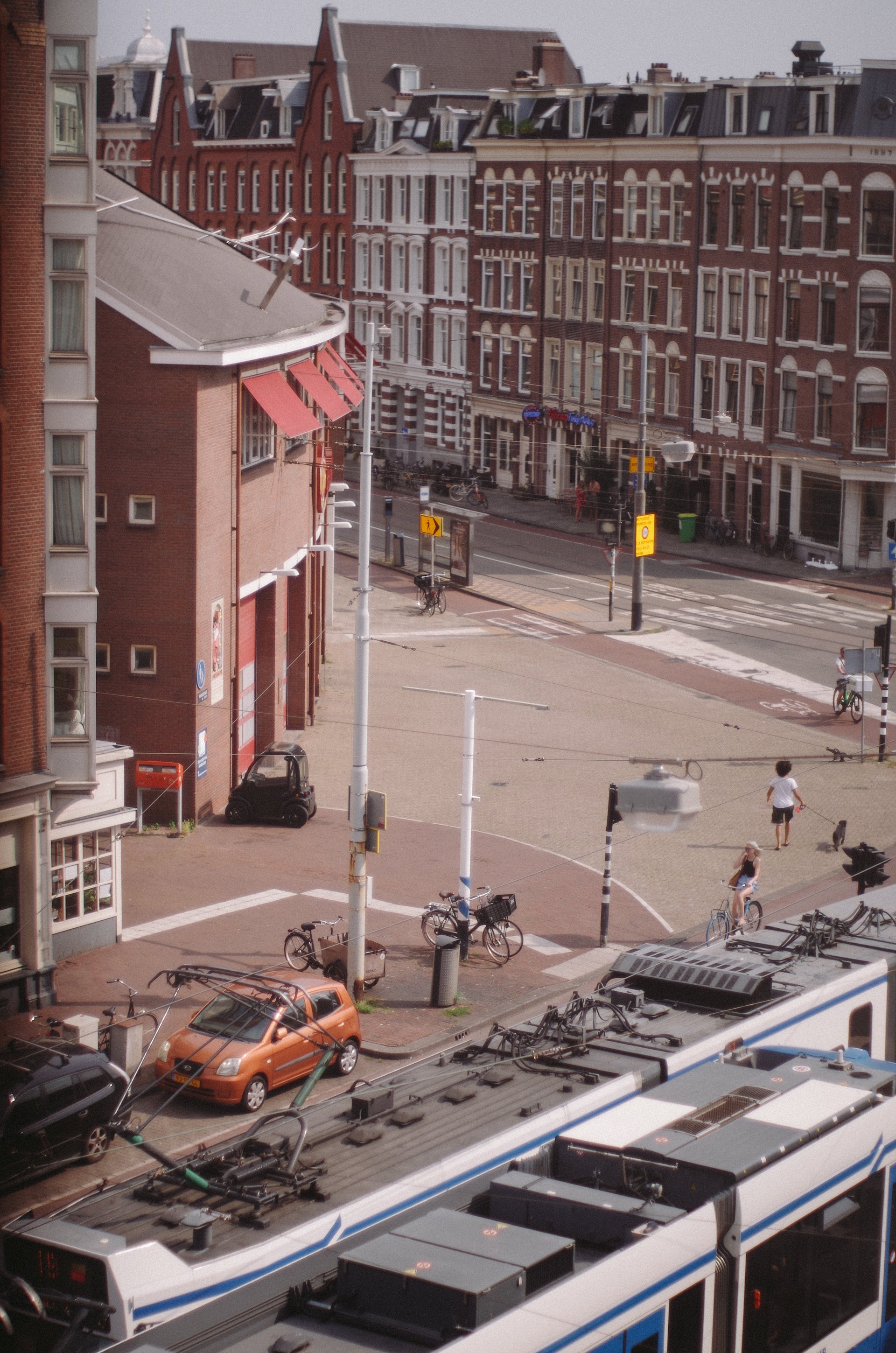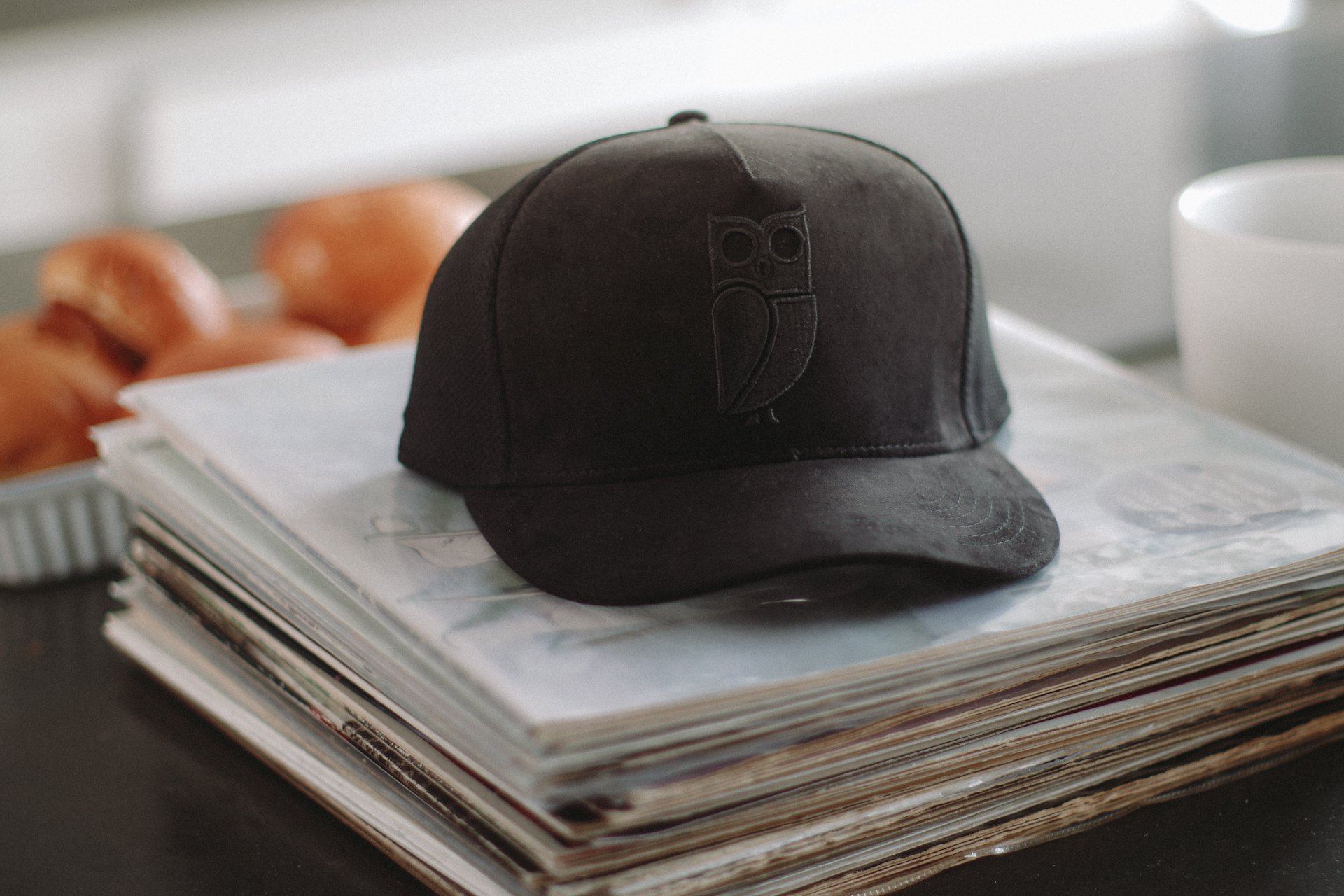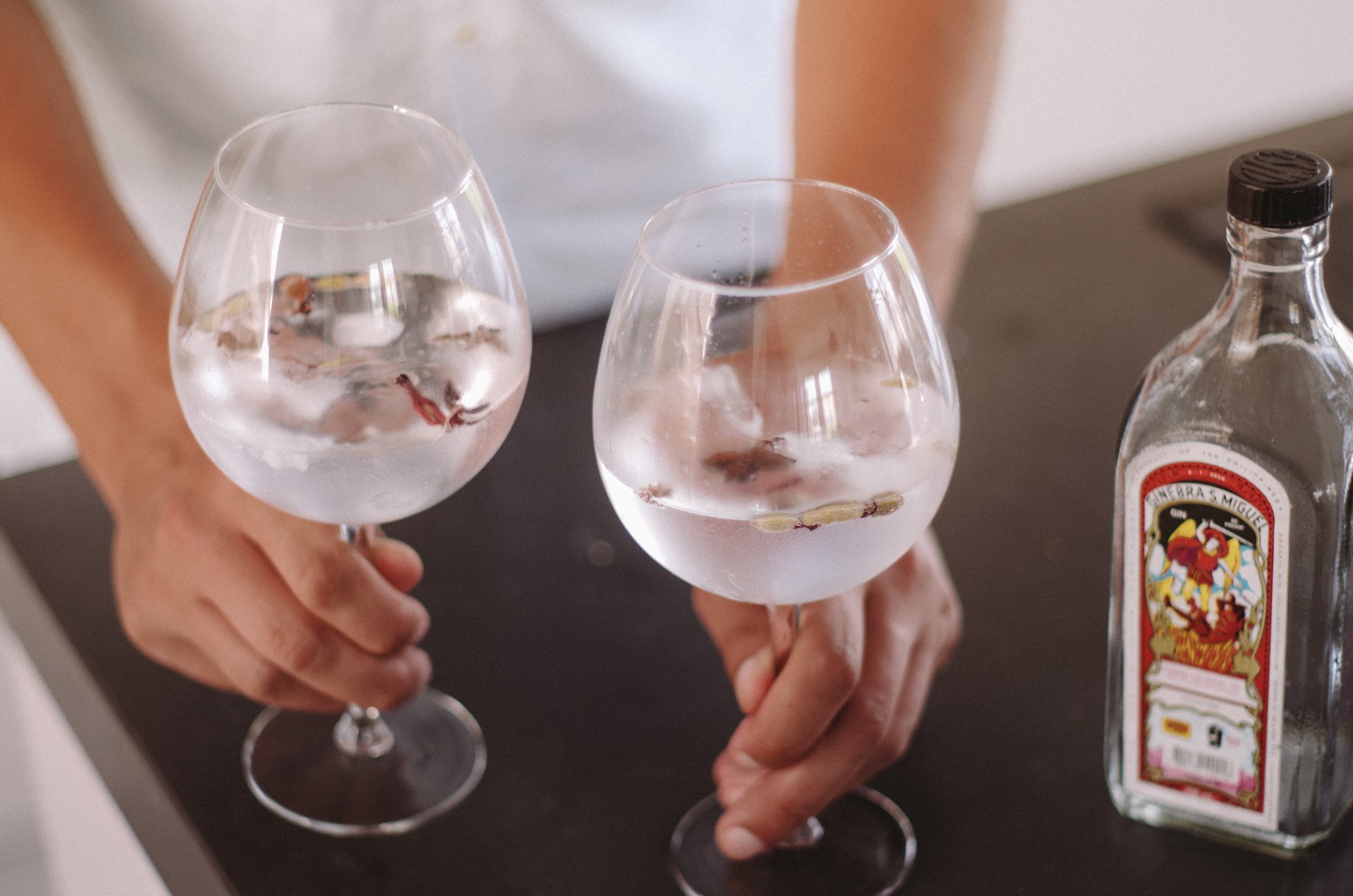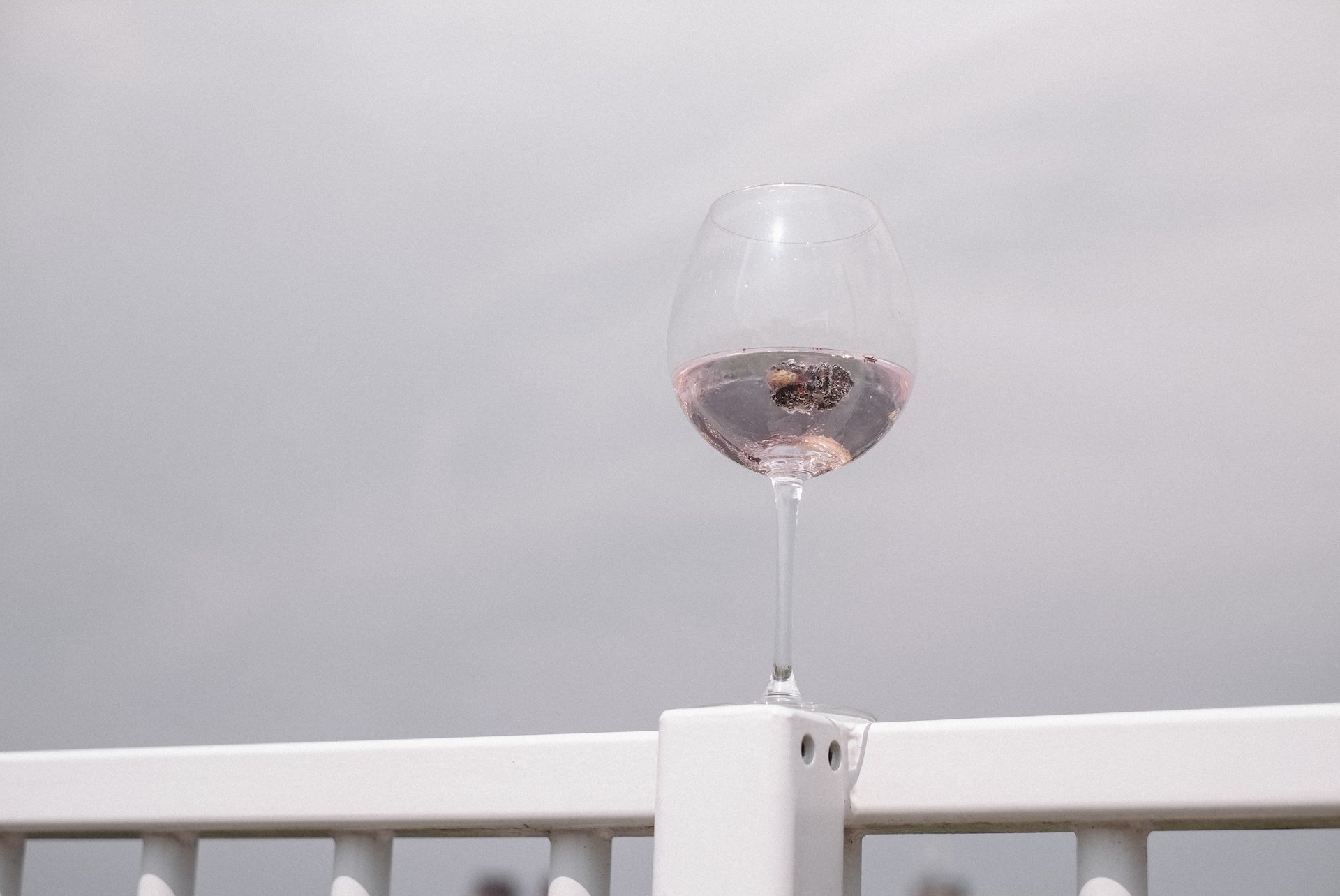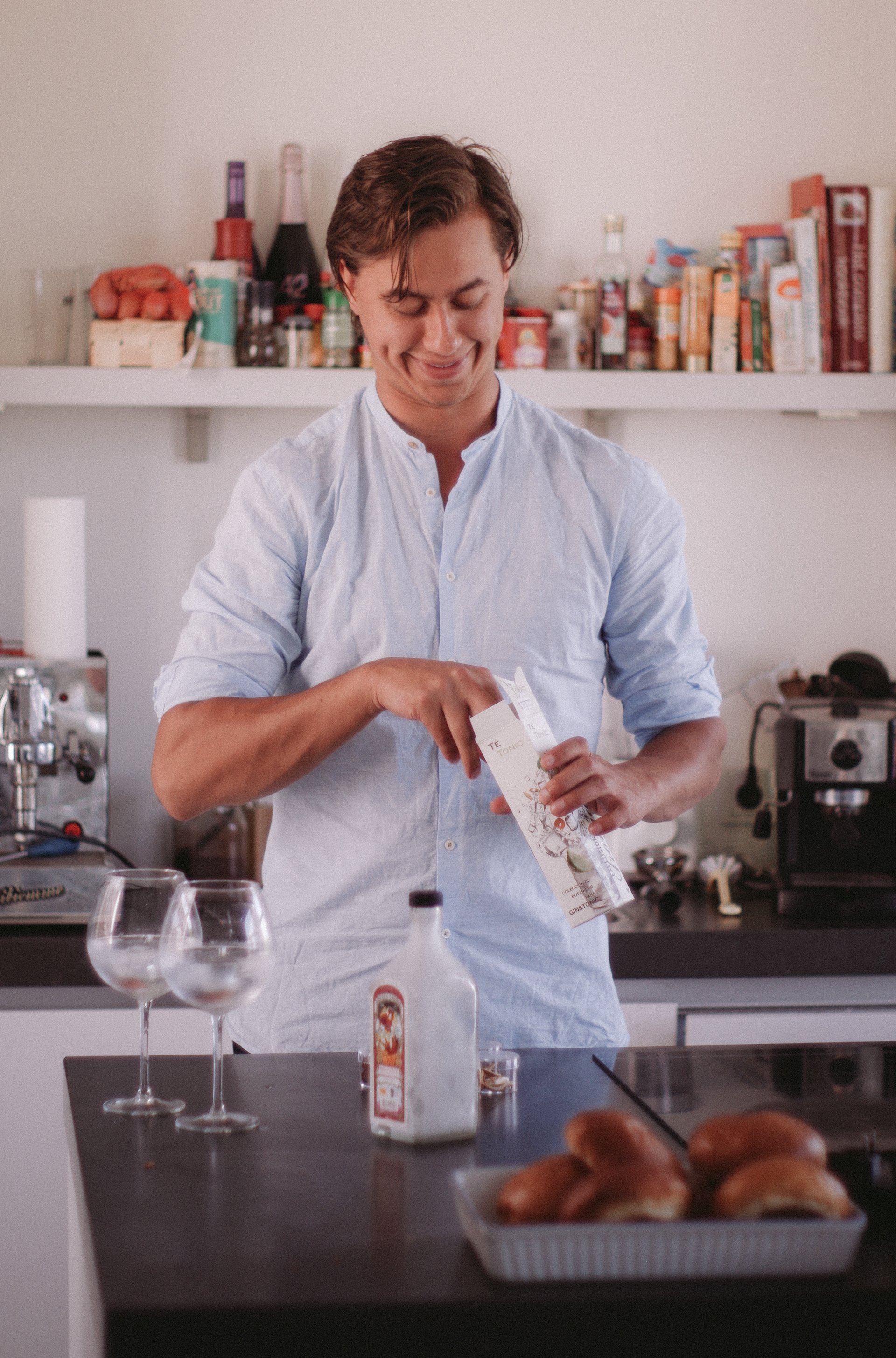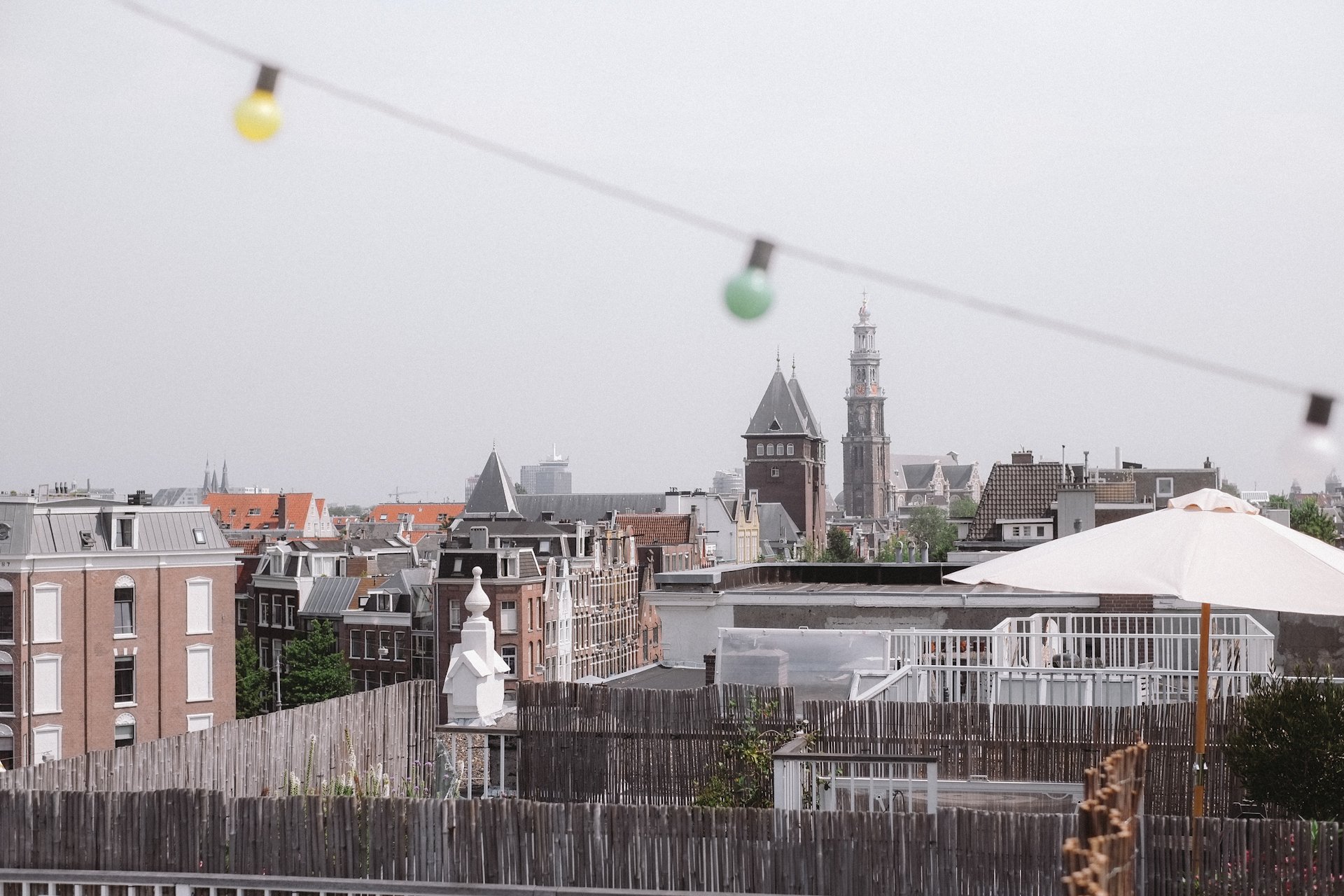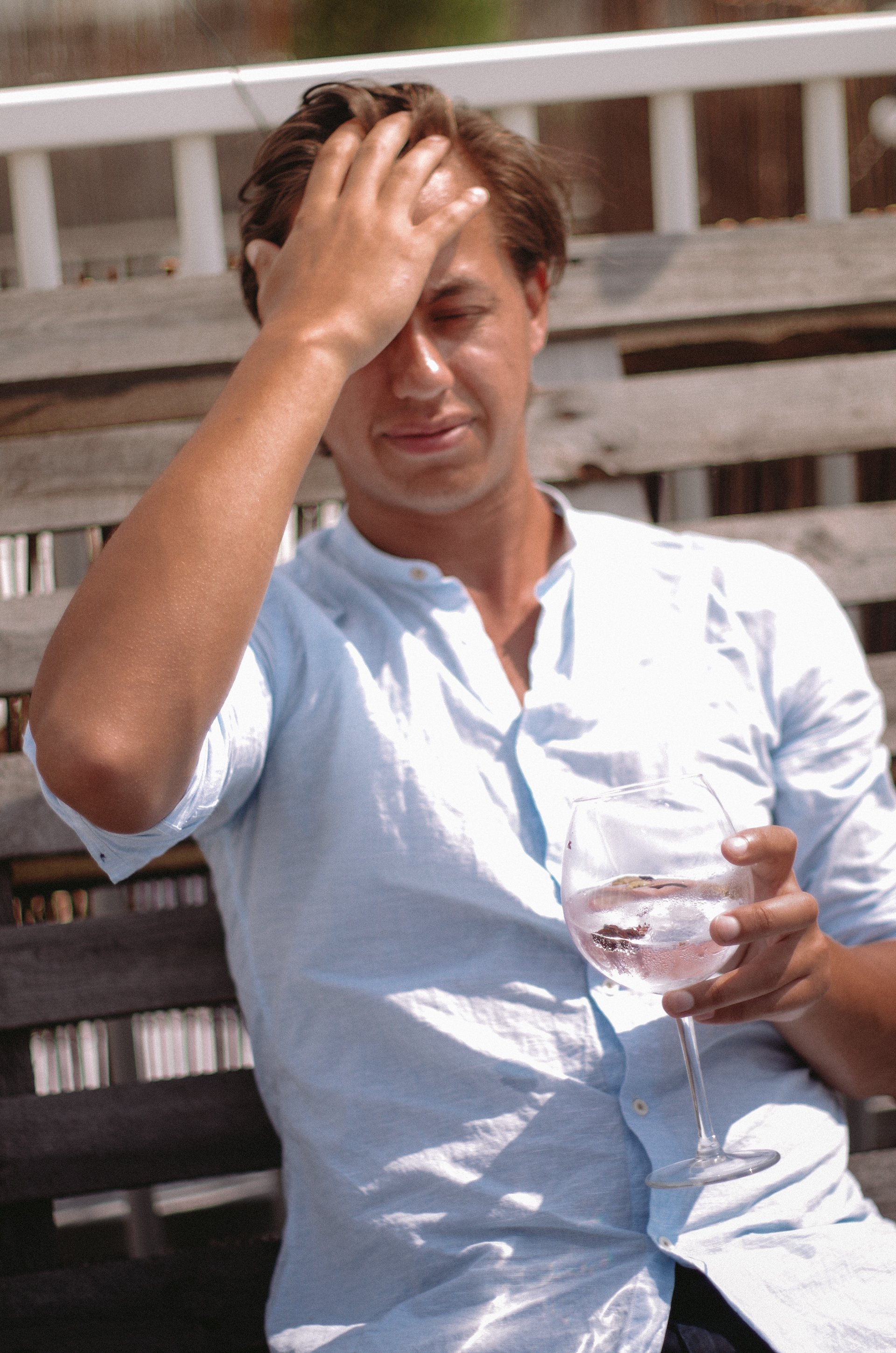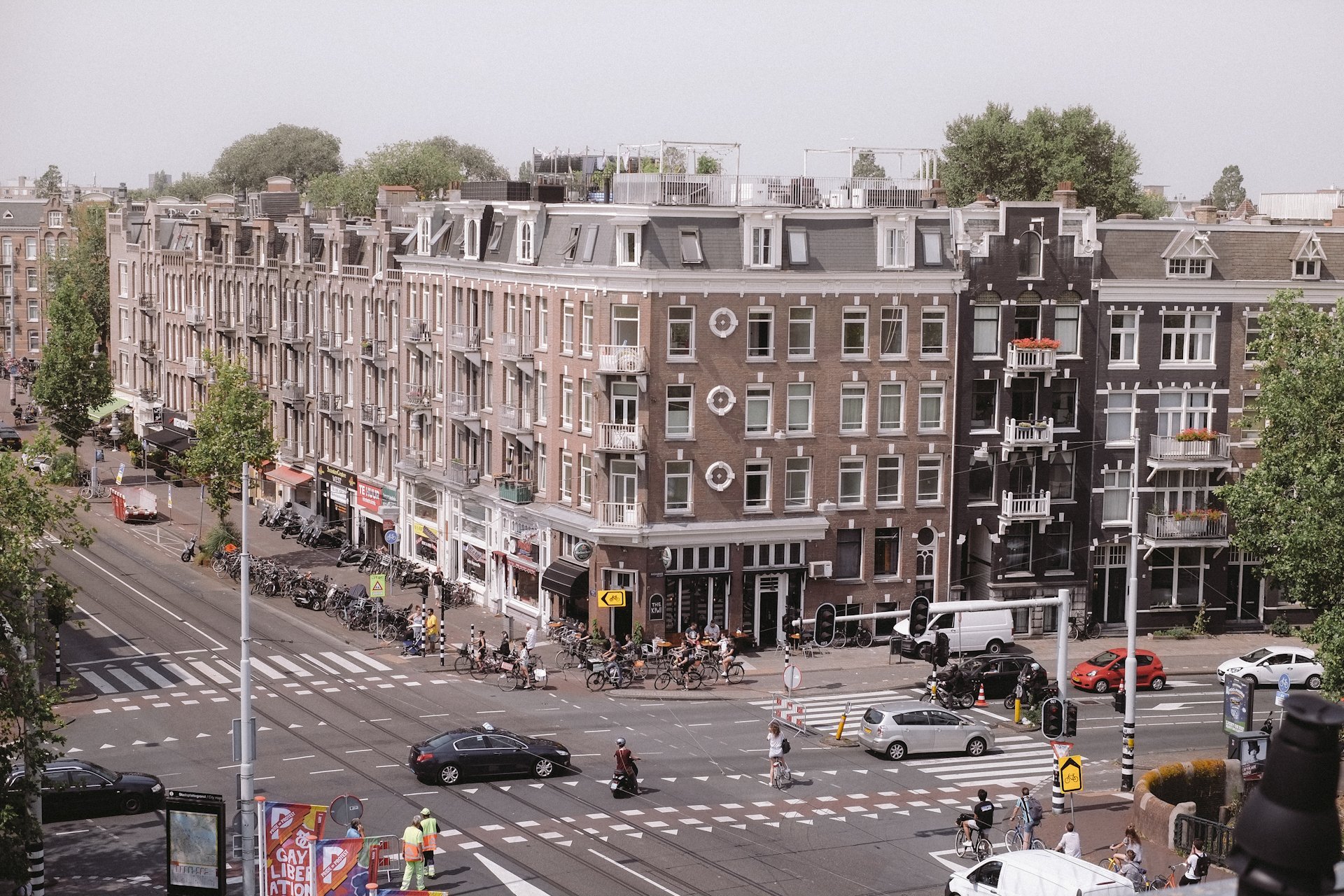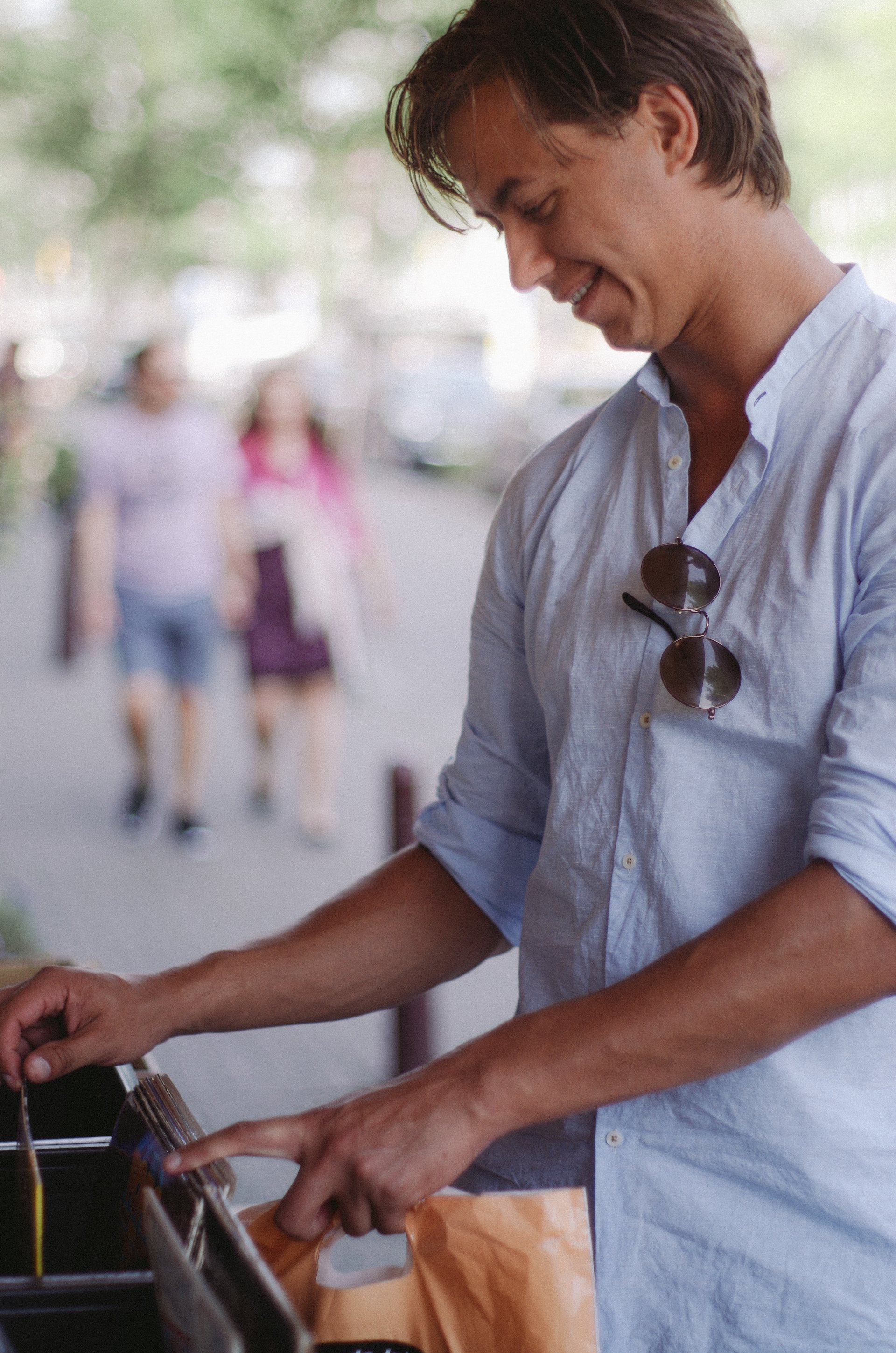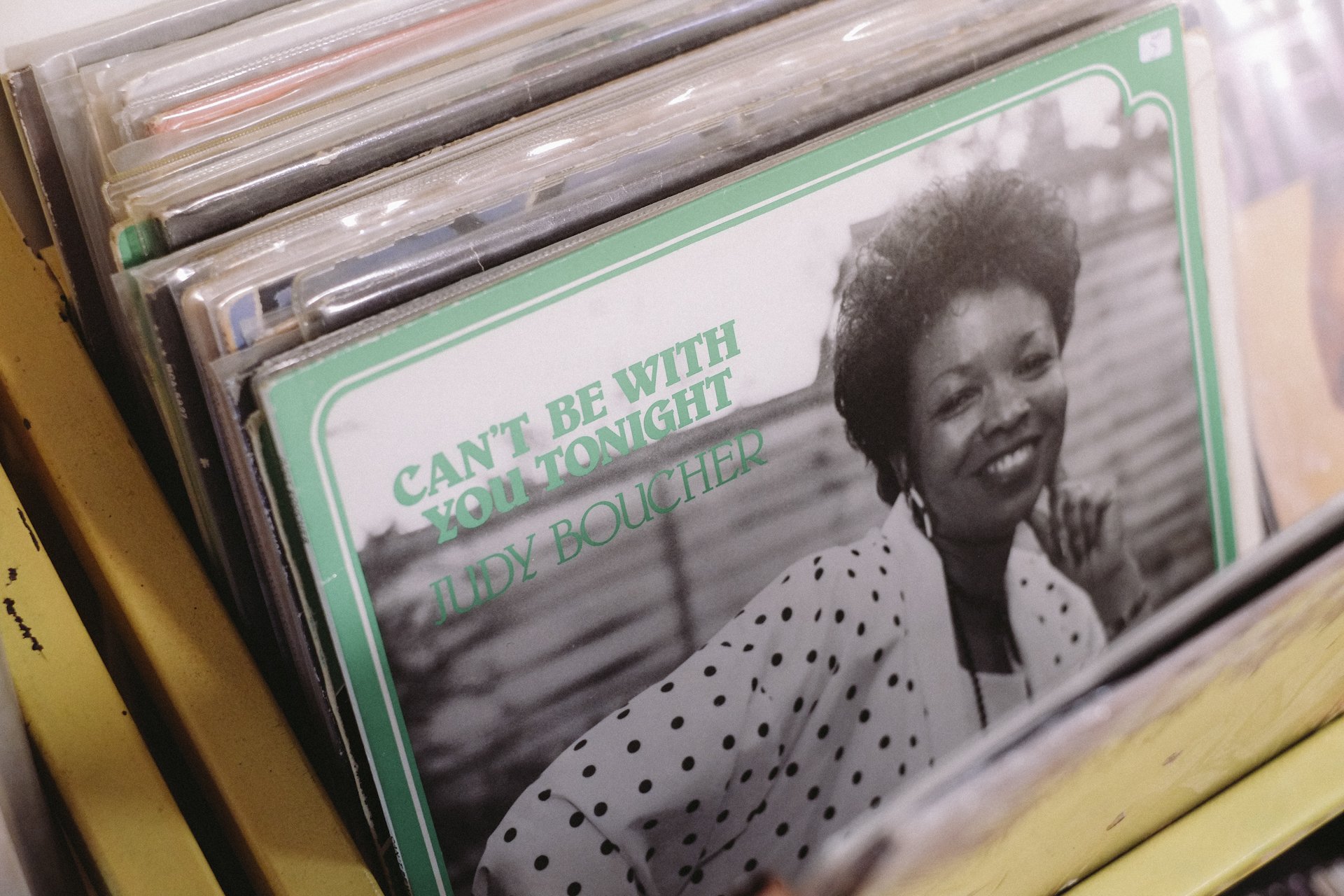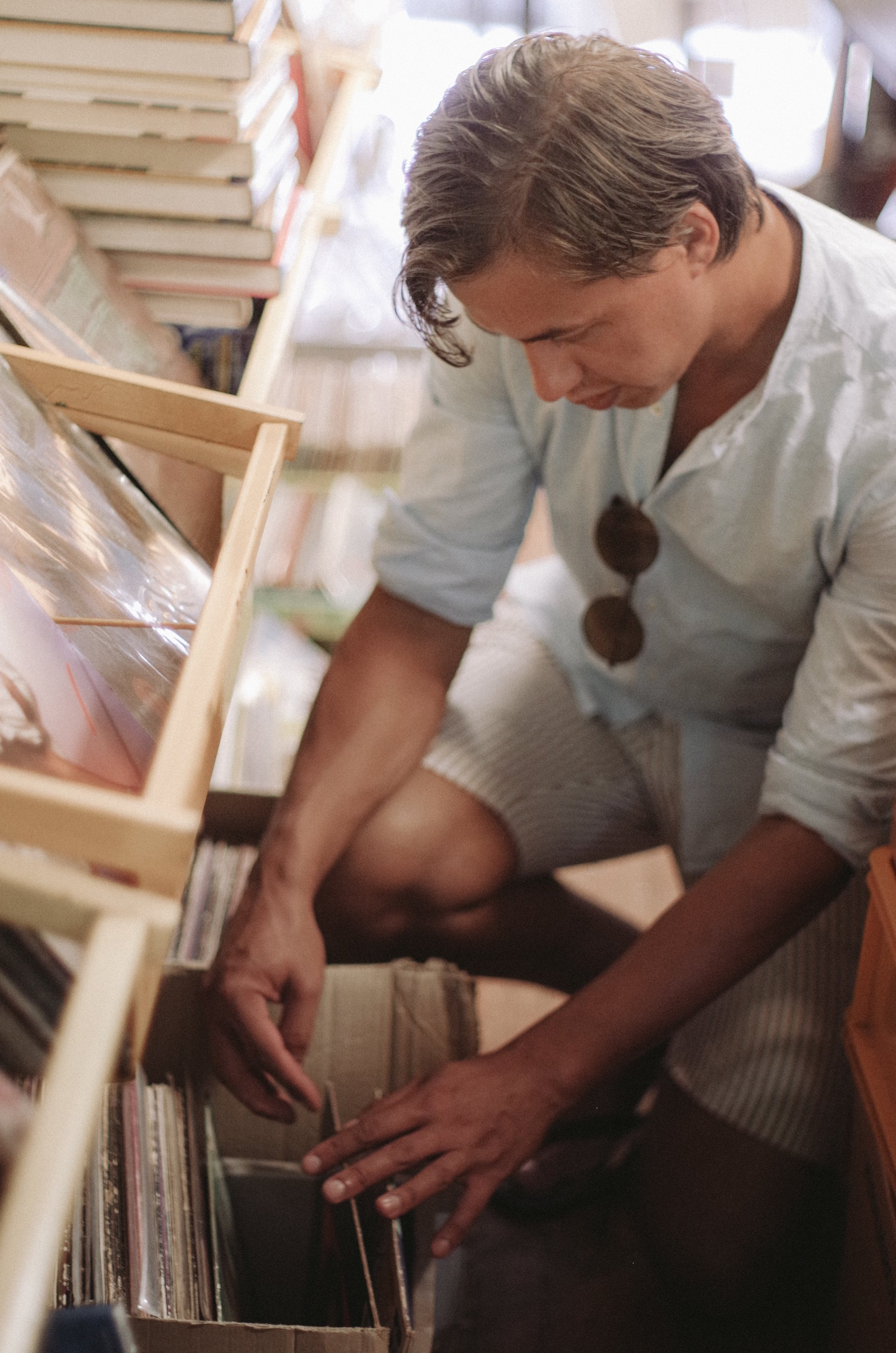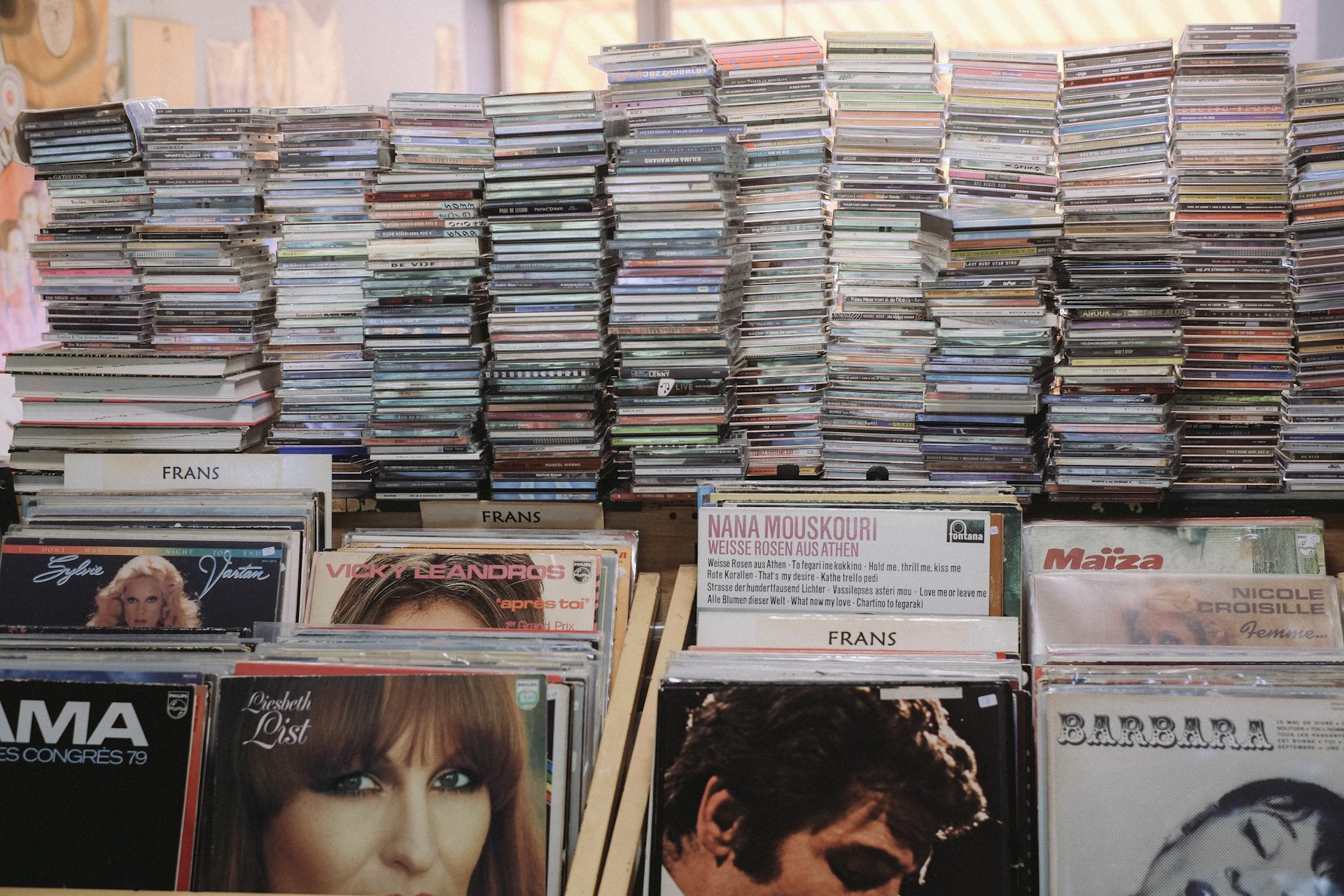This is not a day in the life of Terry; this is a day of leisure in the life of Terry. On any other day, he is busy with becoming a doctor, managing his business, or travelling the world. No matter what he is doing, he is doing it with dedication and with a genuine interest for others. This applies to leisure time, too. I told him the first time we met to discuss travel writing and photography over a cup of coffee: “You are a humanitarian.” I still think this is the best way to describe him. He smiled because he is also modest. Then a kid tripped and fell at a table next to us. Terry turned his head in less than a second. The kid was alright, so he just said: “Well, I’m off duty.”
I was happy when he accepted to be featured in “A Day in the Life of..” – a category in which I usually invite friends or people I know quite well. He is none of the above, and yet it makes total sense for him to be here. There is this sense of openness and generosity about him – I think they call it charisma – that makes people naturally gravitate towards him. I could see this when going out and about Amsterdam with him for a day in his life.
* * *
The day we meet for photos, Amsterdam is melting and we are melting, too. Terry is not impressed. He has just woken up after a night of barbecue and drinks with friends on a rooftop in the old centre. He lets me in, gives me a glass of cold water from the fridge, then starts to clean the coffee stains around the kitchen sink. As he sprays some cleaning solution on the top of the electric stove, he tells me the coffee machine is not working. I suggest we forget about machines, boil some water instead, and make coffee Turkish style. No. He will find a solution. He grinds the beans at the defunct machine, produces a filter from one of the drawers, then we have coffee. We enjoy it with some breakfast in his apartment overlooking the Rozengracht. It is obvious how much he likes the place. He has been living here for a couple of years. While still central, it is outside the madness. Besides, he can walk everywhere.
I ask him to describe a normal morning in his life. He says he has to be at the hospital at 07:45 every day and that in Amsterdam Noord. No time for breakfast at home. In the weekend though, he likes to take it really slow and enjoy the full package: rest, food, reading, time with friends, and a visit to some of his favourite places in the area. And this is exactly where I am planning to follow him.
Looking at the collection of medical books on the shelves whose only titles give me the shivers, I ask Terry what made him choose medicine. He says he also studied law for a year but had to give it up when admitted to medical school. At this point, obviously, we have to make a little detour and talk about Suits and Harvey Specter.
“Do you think Harvey is handsome?” he asks not trying to hold back a smile.
“Are you kidding me? Not only is he handsome, but there is this sense of confidence about him that makes him so appealing. Just let him be with Donna already!”
“His real name is Gabriel Macht.” He stresses on the Macht.
“Oh, I know his real name. I know his father’s name, too. It’s Stephan Macht.”
We laugh and switch back to medicine. The reason he chose it, as expected, has everything to do with caring about people and, I would add, having the dedication and perseverance to follow such a tough yet highly rewarding field.
“And what exactly are you specializing in?” I ask willing to close the subject.
“Surgery,” he says as if my question was about his favourite brand of toothpaste. I am not even surprised.
With such a busy schedule, one would think there is no time left for much else, let alone other projects. It is not the case for Terry, who is also the proud owner of Amsterdam-based clothing brand Veryus, specialized in creating limited suede caps.
“Why Veryus?” I ask while he is scrolling up and down on the website to show me part of the collection.
“It comes from various, obviously.”
I think of various people wearing various coloured caps in various countries.
“Do you actually have the energy for this, especially since you are training to become a doctor, or is it just something to do?”
“Oh, I definitely enjoy doing this. I don’t like to be aggressive with my brand, I make the caps because I do believe in their superior quality. And it makes me happy to see people at festivals wearing them or receiving messages from total strangers telling me how much they like my caps and how they receive compliments from others when wearing them.”
“I am totally getting it,” I say. “I know how happy I am whenever people I take photos of use them or when others write to me to compliment me for a piece of writing I did that managed to change something for them.”
I know there is a strong connection between Terry’s brand and travel.
“I always try to inspire my customers to travel and explore the world and therefore I created the slogan: <Let’s travel the world with Veryus>, where I stimulate people to share their travel photos whenever wearing one of my caps. I’ve recently added dry bags to the collection, to become more like a travel brand.”
I make a joke and ask if there are also wet bags, not in the collection, but in the world. Terry doesn’t look so amused. For him, a dry bag is what a dry bag is: something necessary to keep your stuff safe and dry while you climb the mountains.
“Alright, it’s past midday. We can drink now.” He rushes to the kitchen. “Gin & Tonic?”
“Sounds good,” I say following him to the kitchen island.
He is pointing at the now empty gin bottle resting on the counter: “From Philippines.”
I feel like I want to hear more about his travels. So far, he has seen no less than fifty countries. Not bad for a 27-year old. But words need to be grabbed and pulled out with claws from Terry’s mouth when it comes to his achievements, so I decide to park the subject for the time being.
I only ask how he accommodates his eating habits while travelling. Easy.
“I have no habits,” he says. “I always like to try new things.”
We take the drinks up on the rooftop terrace with views over the city. I can see the Westerkerk, a few meters away, the two pyramid buildings in the West, the office buildings at Sloterdijk, the Pontsteiger at Houthavens, the A’dam Tower from across the IJ, the shiny skyscrapers at the Zuid As, and the rest of architectural landmarks I might not properly recognize.
“So you see everything but the East.”
He laughs.
“Now, who wants to see that?” he jokes, well aware the East is my side of town.
We are melting in the strong afternoon sun, but no way we are going to hide from it. I might well be a lover of summer, but I am also thinking of excessive sunlight exposure and things like that.
“Why not use an umbrella, for the shadow?” I say.
My Romanian ingeniosity must pass as so strange for Terry, like earlier, during the coffee episode.
“No, we don’t do that here.”
I am amused by the cultural differences between us. I don’t insist, but I don’t give up either. I just change the strategy.
“I thought doctors recommend not staying in the sun for too long.”
It sounds more like a question rather than a statement.
“Not in the Netherlands,” he says with conviction.
I am not winning this.
“Well, if the doctors say so.” I laugh and take another sip of gin.
I ask Terry if he is happy with his life, if there is anything in particular he wishes for. He shakes his shoulders and says he is content with everything he has achieved so far and is simply enjoying whatever life is offering him on a daily basis. And that’s when I remember, even though it is so easy to forget this when talking to him, that Terry is Dutch. He might be lacking the proverbial arrogance of his fellow countrymen, of Amsterdammers in particular, but when it comes to being happy with what you have, he is as Dutch as Dutch can be. And that is a good thing.
Then we reach my favourite subject of discussion with a Dutch man: the (in my opinion) messed-up dynamics between Dutch men and Dutch women, in other words dating in the Netherlands. Without any remorse, I tell him my view on the subject, which goes something like this: Dutch men are like shape without contents, handsome but not interesting, while Dutch women are predators with no grace. After a decade of living in Amsterdam, I think I am as entitled to make statements about Dutch people as Dutch people make about me. Terry just smiles. It’s not about whether he agrees or not. I realize this is the smile he displays whenever I make such general statements. It is his personal answer to prejudice, and I take it.
There are some very Dutch and some very un-Dutch things about Terry. I think this is the second-best way to describe him (after humanitarian.) Take music, for example. I was one hundred per cent sure that, like almost all Dutch young men, he was into electronic music, or worse, techno. Another prejudice I bring to the table that makes him smile. He is proud to show me his vinyl collection, which mostly consists of R&B, soul, and some jazz too. There is a certain Motown Records piece he holds in his hands with the names of Lionel Richie, Diana Ross, the Commodores, and the like. The year when each song on the compilation came out is also visible: late 60s, 70s, 80s.
“You must know them very well,” he says as if it’s the most natural thing in the world to say.
Nothing can keep me from bursting into laughter.
“I am not that old, you know? A few years older doesn’t make me an expert in the 60s.”
He doesn’t say anything more, but I know exactly where this statement is going to: on the list with very Dutch items. Thank God for my sense of humour.
Time to go out and let Terry guide me to his favourite places in the neighbourhood. We are on our way to his favourite vinyl shop, a small place on the Prinsengracht where Terry gets his favourite music from. “I usually get two vinyls each time I go there: one that I like, and with the other, I take a risk.” In his hand, he carries a plastic bag with the shop’s logo on it, which he took from home and which makes the shop’s owner smile when Terry leaves it on the counter. My humble understanding of the Dutch language is telling me that it was the owner’s request for Terry to bring it back, so as not to get a new one each time he buys something.
The place is just like he described it: small, cramped with boxes – some organized alphabetically or per genre – others completely in chaos. Terry is browsing them carefully, with the same patience that seems to be an extension of every gesture he makes. While looking into a cardboard box labelled “soundtrack,” he asks about the kind of music I like. I tell him my musical interest is rather eclectic, depending on the mood I’m in, but that I mostly listen to Off radio nowadays and select my songs from there. I also mention my favourite electronic music artist, George Clanton, and it seems that I am more into electronic music than Terry has ever been.
Afterwards, when we walk back to the Rozengracht, we discuss lyrics and their impact on songs, the art of saying something already said a million times before, yet in a different way, solely through the mastering of words. He agrees up to the point where I say that, from the lyric aspect alone, R&B songs are rather cheesy.
I ask if there are other places with significance for him in Amsterdam. Like a particular street he likes to walk along or a place linked to a specific memory. He ponders for a while.
“Not really,” he says. “Every place can be a nice place and you can make memories anywhere.”
How liberating. I then think that if someone had asked me that when I was 27 and living in Bucharest, my answer would not have been much different. When you are born in a city and you make a living for yourself there, the city is nothing but the background against which your life happens. And aren’t cities supposed to be just that? Or maybe we tend to give them more meaning as we get older.
Starving, we stop at one of the places where Terry is a regular. He told me the first time we met, most probably in the context of me asking him about his favourite places in Amsterdam, that he liked Bagels & Beans, a Dutch classic which I happen to be very fond of too. He was going there almost every weekend, to the point where the staff learned his favourite beverage and were greeting him with it whenever crossing their threshold.
We enter the location on Rozengracht and one of the girls at the counter says that food orders are no longer possible because they are closing soon. The girl must be a rookie because another one jumps right in and asks her to prepare a big cappuccino for Terry. Then she looks at me and asks what is it that I would like to have. I say matcha latte, she recommends the one with ice. I say ice matcha latte it is, and follow Terry on the terrace.
“I can’t believe they have no food,” I say feeling really hungry.
“I know. I just couldn’t refuse the cappuccino after what happened inside.”
I look at him sipping patiently from his cappuccino and think that yes, this is Terry, who would rather be starving – and have me starve with him, too – than disrespectful.
We cross the street and enter the Albert Heijn. We are at the cafe part, right by the entrance, where a lady is preparing fresh sandwiches. Terry takes a bite from the tray left there with this exact purpose.
“I love the Albert Heijn,” he says chewing from what appears to be a sample of a ham sandwich.
That makes me smile, but then I realize I also like the supermarket in discussion.
“I do miss it when I travel,” I say.
“Oh, God, yes!” he says. Then, in Dutch, to the woman making the sandwiches, a nice Asian lady: “Is it Ok if I take another bite? I already took one.”
The woman looks up at him, then looks back down at the sandwiches she is folding, smiles, and says, as if it were their little secret: “I didn’t see anything.”
We order two sandwiches and have them at the bar, facing De Clerqstraat.
“So, when do you think this will be ready?” he says munching on his sandwich.
“You mean, the blog post?” My sandwich is too hot and why on earth didn’t I get it untoasted?
“Yes, the writing. In a month or so?”
“A month?” I say surprised. “No, I think I might even do it tonight.”
Then, it is time for me to leave. Terry would meet a friend to catch-up, have dinner, and watch the football game together at his place. He gives me a hug at the crossing, then we part ways. Of course he is a hugger.
I sit down and wait for my tram, thinking that yes, it is possible to give kindness and receive kindness in return. Even in Amsterdam. Even with Dutch people.
